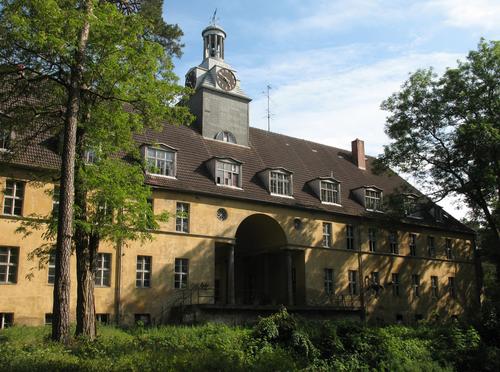
A Travelogue in Five Parts By Nicholas Kulish
Nicholas Kulish spent more than half a decade tracing the path of Aribert Heim, a Nazi concentration camp doctor who fled postwar justice in Germany. The research for his book on Heim, The Eternal Nazi, co-authored with Souad Mekhennet, led him to Denmark, Austria, Egypt, Morocco, and across Germany. This is the final entry from his travels. Catch up with Part I. Part II, Part III, Part IV.
V. Templin
At the Mühlenseeperle, a simple hotel with tile floors on the edge of the old town of Templin in Brandenburg, the staff almost certainly believes to this day that I was a serial killer or some other dark and dangerous outsider. German retirees stop there on driving tours of the former East Germany by twos and fours. The occasional tall-windowed coachbus groans, squeaks and hisses into the parking lot. A lanky American with a strange cargo of cardboard boxes and an unheard of two-week reservation attracted attention. I could, without exaggeration, hear the whispers.
It cannot have assuaged any fears at the front desk or the hotel restaurant when the cleaning lady learned that those boxes were filled with books about Nazi doctors and concentration camps. As the book wore on through the years my girlfriend joked that I couldn’t buy a book unless it had a swastika on the cover. She and her wry asides were happily vacationing on the Croatian coast with a friend, emails told of beaches and a rented boat, nightclubs in Hvar and calamari fresh from the Adriatic. I had a book deadline in two weeks. Not only was vacation out of the question, but even our home in Berlin held too many distractions. I needed a place where I knew absolutely no one and where I could stay for relatively cheap.
In truth Templin was not entirely unremarkable. I chose it partly because it was German Chancellor Angela Merkel’s hometown and the thought had crossed my mind that I would gain valuable insights into her past that cast new light on her present by absorbing the vibrations of the little town in the Uckermark. Once I was binge writing for twelve to fourteen hours a day any idea that I would nonchalantly ferret out the childhood secrets of Germany’s most powerful politician fell well and truly by the wayside.
Mornings meant a steady diet of mistrust over muesli. Everyone in the breakfast room was there in a group, couples or nuclear families, daughters accompanying aging mothers, middle-aged men on motorcycle road trips. This establishment, the Pearl of the Mühlensee, was a social hotel. Only the weird...
You have reached your article limit
Sign up for a digital subscription and continue reading all new issues, plus our entire archives, for just $1.50/month.
Already a subscriber? Sign in




